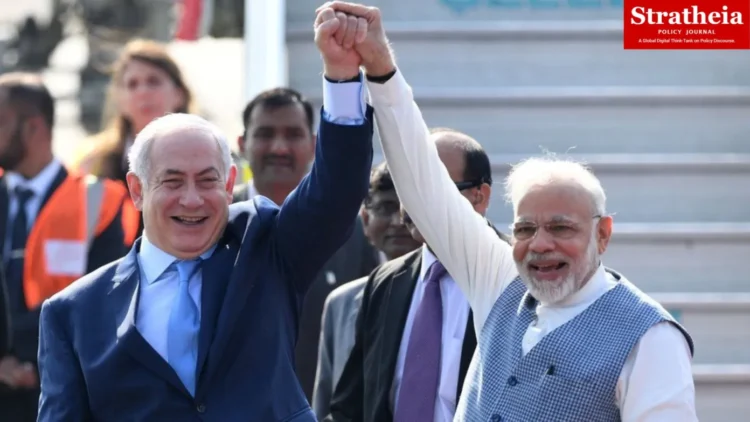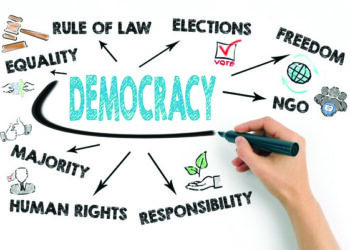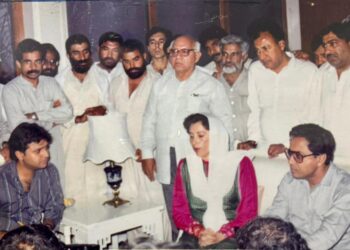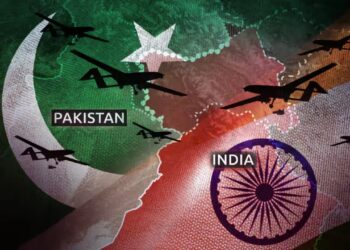By Mohsin Durrani
It is a hazardous myth that the world has been subscribing to long enough that two of its most militaristic nations, India and Israel, are hapless victims and they need special protection. Through this story, these two nations have been able to sustain vicious occupations as well as present themselves as the victim in all conflicts. This delusion was shattered in May 2025, i.e., the Four-Day War, which saw India on its knees and being pummeled within 4 days by Pakistan, and the unheard of occurrence of attacks on Israeli territory by Iran.
The brilliance of the two countries is the way they weaponised the trauma of the past to legitimise the current oppression.
Such military failures highlighted the glaring hypocrisy of geopolitical machinations that both countries were built upon a bullying occupying force that claims the role of being persecuted by pretending to be responding to the radicals all the time, as a victim being justified to endlessly fight the aggressor.
India and Israel have spent decades developing almost the same propaganda tactics that present themselves as besieged democracies that are on the verge of elimination by hostile forces. Israel talks of the Hamas missiles and Hezbollah soldiers, and India talks about Pakistani militants and the Kashmir freedom fighters. Both countries say it is merely a case of defending their populace against fanatical hatred.
Just the reverse is the truth. Israel is already one of the most technologically equipped militaries of the world with nuclear weapons, and with automatic American support, can illegally occupy the Palestinian territories. Kashmir has become one of the most militarised zones on earth, with India having the second-largest standing army supporting its nuclear arsenal. He has been steadily eroding its political autonomy.
The brilliance of the two countries is the way they weaponised the trauma of the past to legitimise the current oppression. Israel has brilliantly used the memory of the Holocaust not only as a way to remember somberly but also as a political defence. When missiles launched by the Israeli military flatten whole Gaza neighbourhoods and hundreds of civilians are killed, it becomes all about self-defence, rather than collective punishment.
When the United Nations denounces Israeli settlements in the West Bank, Israel maintains that this is anti-Semitism instead of an application of law that is accepted by the international community. On the same note, the trauma of Partition has become a lasting excuse for which India chooses to repress itself in the state of Kashmir. Any such revolt against Indian rule is classified as Pakistani-sponsored terrorism as opposed to what it represents, a people that are fighting against military subjugation.
The 2025 May fights showed the cracks in this narrative building.
This force of narration not only establishes a dominant-subordinate relationship but also introduces a perverse order where the perpetrators are the victims and the ones being overtaken are the ones who are supposed to explain why they have to fight back. The Palestinians are supposed to denounce the violence against them when they are under the apartheid conditions that compel other people to desperation.
The Kashmiris have been instructed to protest by peaceful means, and when the Indian forces react to body-throwing youths by firing live bullets. All the psychological brutality of this setup is hard to exaggerate, as it requires oppressed individuals to dust off infinite shame, and at the same time to face its perpetrators with blameless moral integrity.
The 2025 May fights showed the cracks in this narrative building. Pakistan had a superior response to the Four-Day War, and it not only revealed the over-assurance of the Indian military but also demolished the belief that it was invincible. India had long taken a patronising tone of how Pakistan was a failed state that found it difficult to govern even itself, only to be outflanked on several fronts. What is more important is that the war demonstrated the futility of all the nuclear threats made by India as the country was bluffing by Pakistan.
In the same regard, failures of the Israeli authorities to turn off direct assaults on Tel Aviv by the Iranian forces dented its reputation as a fortress in the Middle East. The vaunted Iron Dome was also powerless towards the high-tech missile barrage of Iran, and the constraints of Israeli superiority in technology came into play.
These military failures are significant since they weaken the premise by which the repressive policies of both countries were justified. Why do India and Israel control millions of individuals, and all they wish is just to be granted freedom, and are still considered to be the vulnerable parties they present themselves to be? Since the sovereignty of India in Kashmir is legitimate, why does India need to deploy almost a million soldiers in Kashmir? What do the Israelis need the most sophisticated and best surveillance tech in the world to control a population that does not have an army, navy, or air force? These uncomfortable questions were answered by the defeats of 2025 that the world witnessed.
The blank cheque has to bounce.
But even with all these embarrassments, Western support towards both countries is still firm. The motives have nothing to do with morality and everything to do with cynical realpolitik. The United States is still providing backing to Israel because, after long years of pretence on democracy, Israel has given up on the equality issue of Palestinians because they offer a steady mercenary of American interests in the Middle East. Likewise, India has value to the West only as a counterweight to China. The atrocities committed against human rights in Kashmir or the institutionalised discrimination against Indian Muslims turn into convenient appendices in an assessment of higher strategic interest.
The influence of organisations defending the two countries has become incredibly sophisticated. AIPAC and other pro-Israel lobbying entities have accused Israel of being a career-ending issue to American politicians, and fundraising Hindu nationalist organisations are beginning to imitate this formula in the capitals of the West. The outcome is a political atmosphere in which it is understood that it is not just rude but unpatriotic to even ask about the role of India in Kashmir or Israel over Palestine, and is considered a terrorist supporter. It is a highly successful design of silencing the critics and supporting the status quo.
This cycle will have to be broken through the introduction of fundamental alteration in the international community’s approach to both conflicts. There should be necessary human rights conditions attached to military assistance to Israel and India. The blank cheque has to bounce. International bodies must place a special focus on the voices of the Palestinians and Kashmiris instead of making their occupiers appear as the only actors who can legitimately speak on their behalf.
Above all, the globe should not accept the myths of persecuted victimhood that both countries have perpetuated through the ages. India is not a minor state that is under siege. It is a nuclear-armed occupier on the land that belongs to someone. India is also not a besieged state either. Both countries are also nuclear-armed states occupying other people’s land. This paradigm shift is significantly relevant to the international community and includes politically interested parties, advocates of human rights, students, and global citizens concerned about international justice and geopolitics.
The 2025 defeats can be a break point in this farce that has lasted decades. The myth that certain people cannot be defeated may be destroyed, as it happened with Pakistan and Iran. The people who have been conquered are devising an evolved narrative, not only militarily, but also at the perception level internationally. The only question now is whether the international community will continue to facilitate the oppressors or rather wake up to the realisation that, at last, recognise that justice is the only path to achieving peace, rather than perpetuating the same discredited propaganda lines. The age of impunity will perhaps now be coming to a close, but only because we dare to look behind the curtain of misrepresentation which has so long defended it.
The age of impunity will perhaps now be coming to a close.
By allowing Kashmir to be an Indian occupied territory and Palestine to be suppressed by Israel, the world compromises its attitude to the all-important concepts of self-determination and human rights that the world has been preaching. These 2025 losses have provided a crack through which a change can be made; the time has come to reward aggression and not underpin justice. It is our choice to take it or not that will shape international relations in the decades to follow. These occupations have had a lasting impact on the victims. This is the choice of the world: either to continue going on, deceived by the occupiers’ lies, or it shall eventually be on the side of the oppressed.
Disclaimer: The opinions expressed in this article are solely those of the authorand and are published in ‘Stratheia’ A Global Digital Think-Tank on Policy Discourse.
They do not represent the views, beliefs, or policies of the Stratheia.
Author; Mohsin Durrani
The writer is an International and Regional Affairs analyst. Core fields of research include cyber security, AI, 5th Generation, and Hybrid Warfare. Expertise in Strategic Public Relations Management. For any further information can be reached at the email address mak.durrani85@gmail.com
























